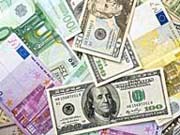China launches forex personal loans

 0 Comment(s)
0 Comment(s) Print
Print E-mail CNTV, November 26, 2013
E-mail CNTV, November 26, 2013
Qingtian, a small county in eastern China's Zhejiang Province has launched foreign currency personal loans, the first in the country.
The county has a huge amount of foreign currency deposits, thanks to its 250,000 residents who emigrated overseas.
Zheng Zhao has just got his 10 thousand euros loan from Qingtian Rural Credit Cooperative, with an annual rate of about 6 percent.
This is expansion funds for Zheng's restaurant in Austria. Getting loans used to be difficult, as China only allows bank lending in yuan, which means hefty transaction fees for exchanging currencies. Now getting a loan from his home town will not only be easier, but less costly.
"We repay in euros, I can just wire the euros from overseas. Loan rate is also about 3 to 4 points cheaper. This would be convenient for us who are running restaurants, and export businesses," Zheng says.
Zheng was the first overseas migrant to get a private loan in euro from a Chinese bank. This is a move to free up foreign currency deposits sitting in Qingtian's local banks. Until the end of September, foreign currency deposits in Qingtian hit nearly 1.4 billion U.S dollars, but lending in foreign currencies was only 40 million U.S dollars. The new loan is so popular, thousands of applications have flooded in.
"If we borrow here, for every 1 million yuan worth of container going overseas, we can save up to 60 thousand yuan. When export business is not strong, this saving is vital, it's enough to sustain our business expansion," Xun Jianjin, migrant in Spain, says.
As exports to Europe faces headwinds on sluggish demand, more migrants have shifted their business from exports to importing into China. Helping Chinese businesses save costs and expand overseas are just some of the reform's immediate tangible benefits.





